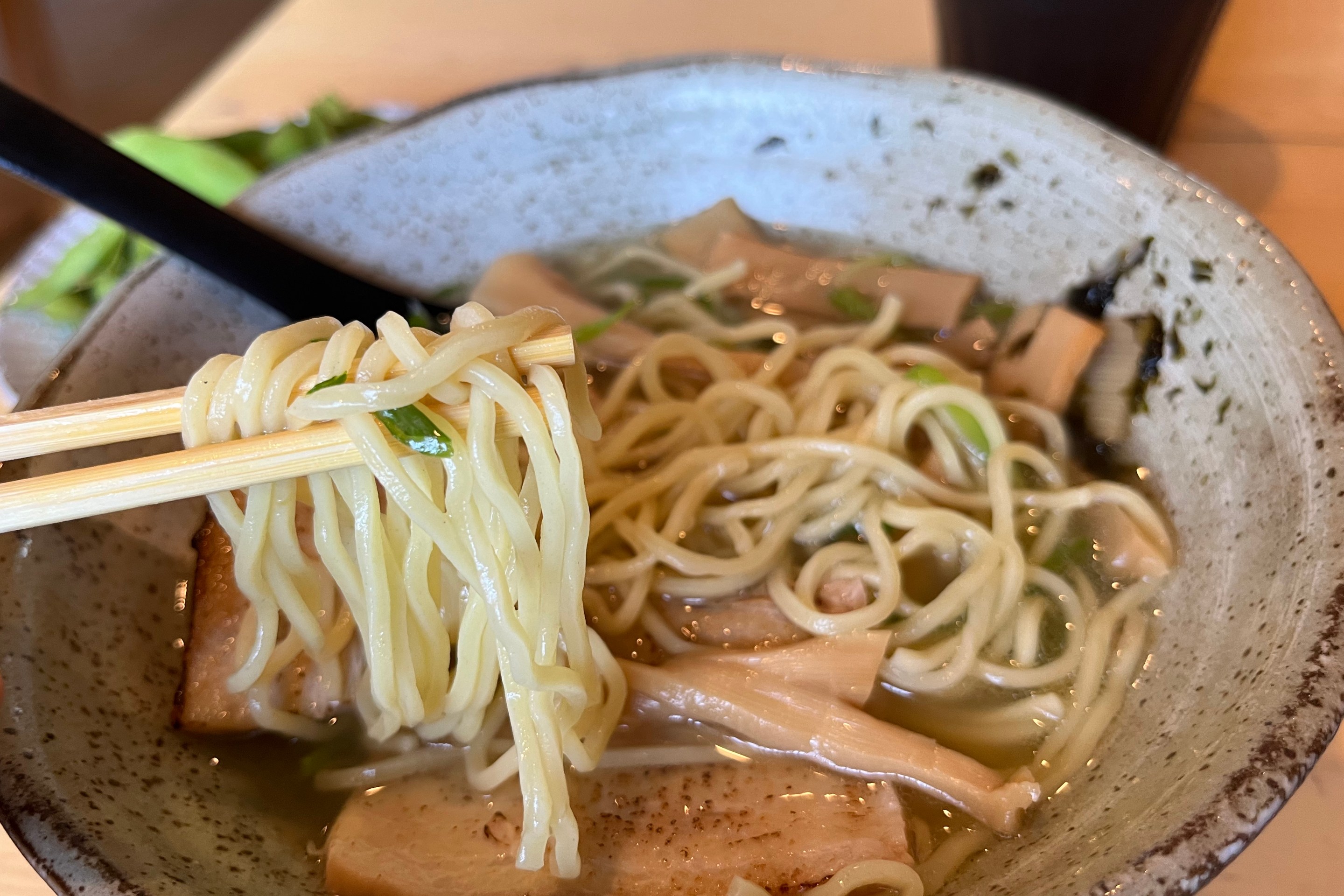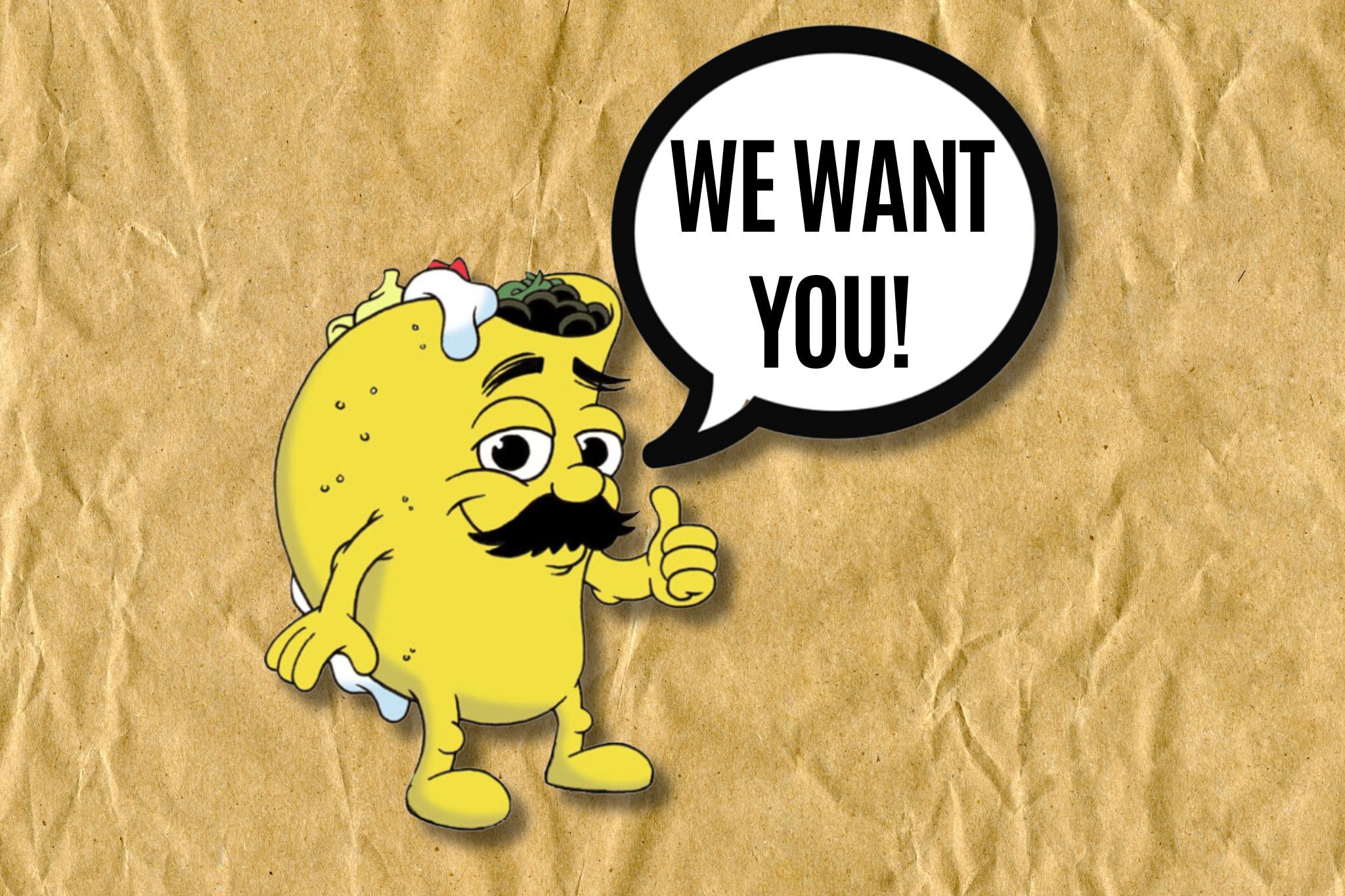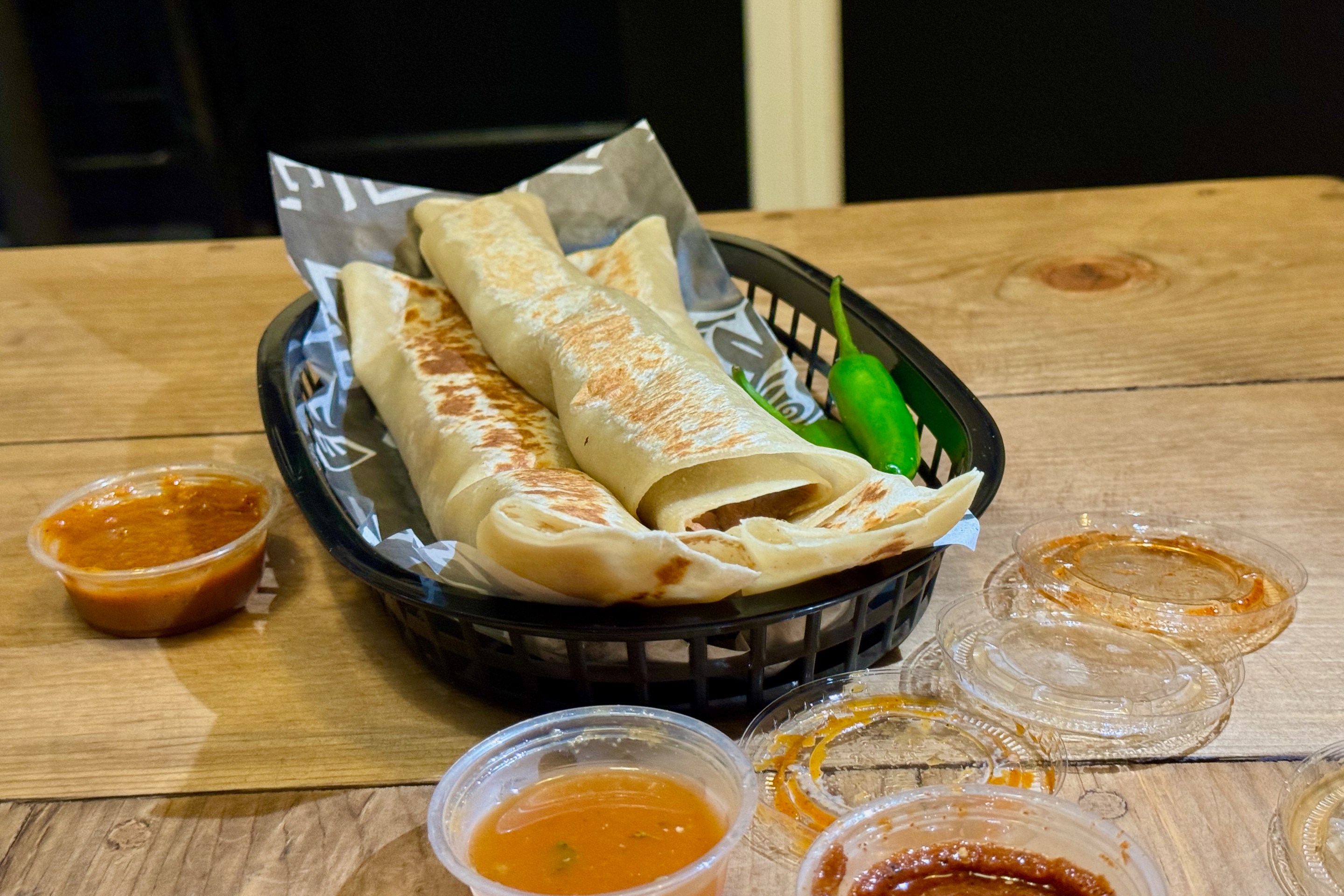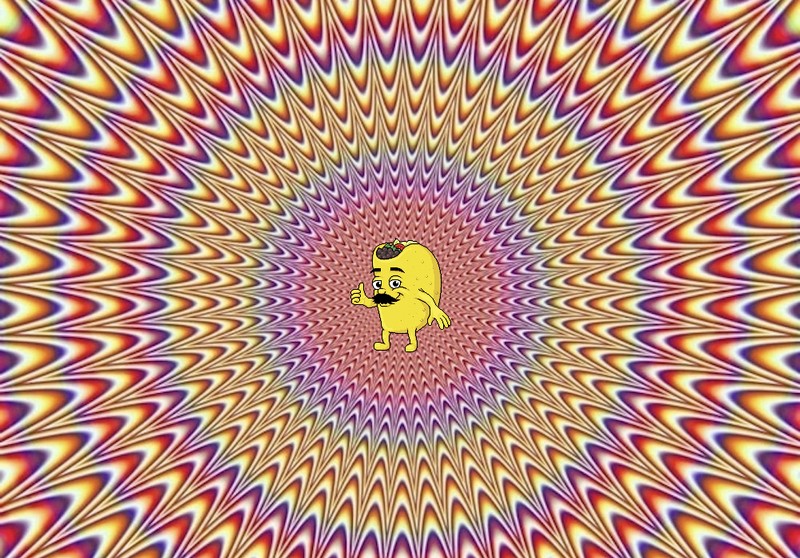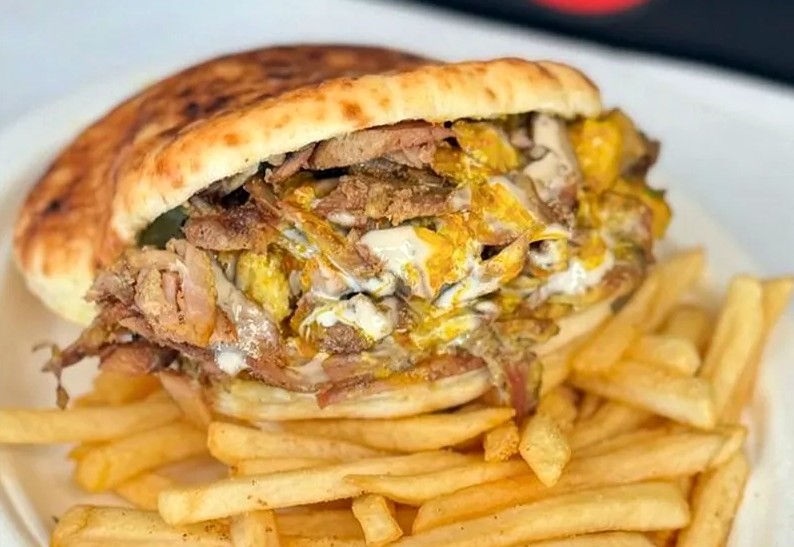My Favorite Taco: Money Mark, An Exclusive Interview With the Long-Time Beastie Boys Collaborator
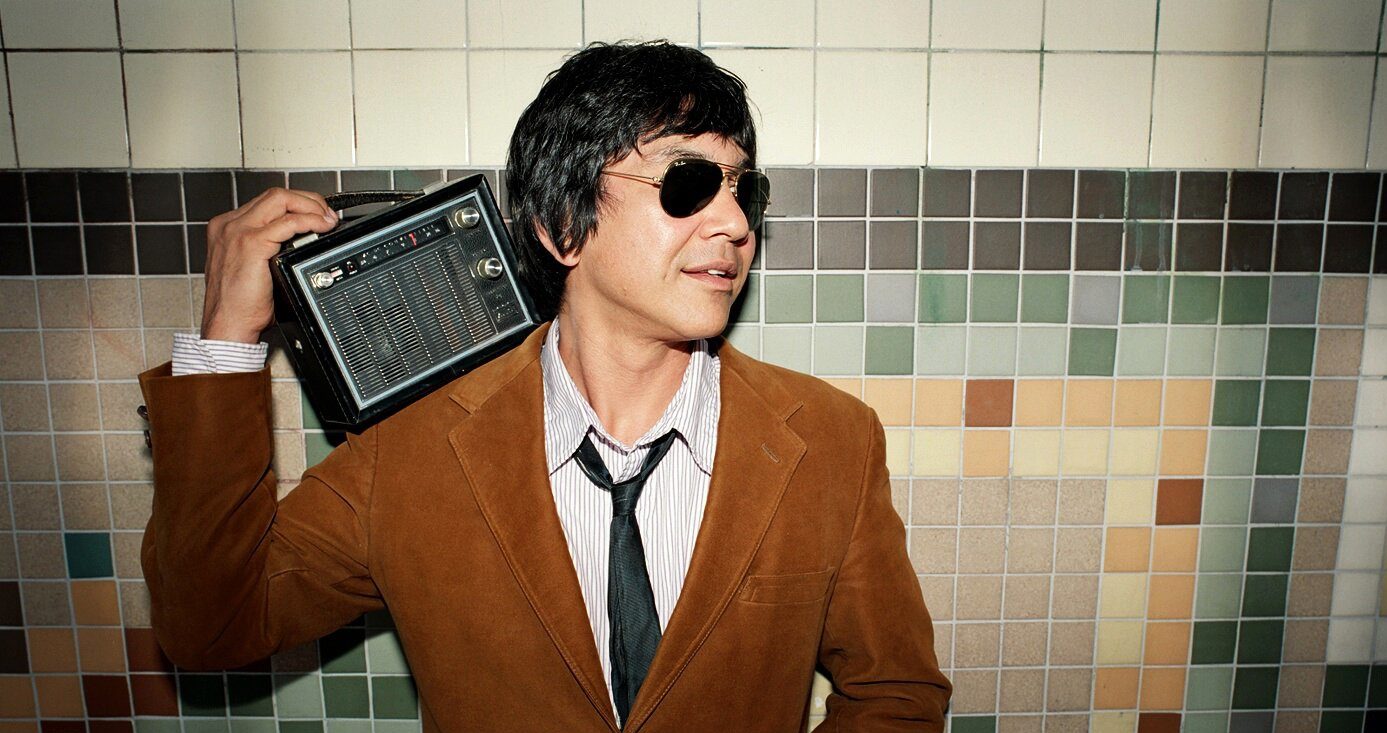
[dropcap size=big]Y[/dropcap]ou have no doubt heard Money Mark before. The keyboard riff that opens “Where It’s At” before Beck drops in with the vocals: that’s Money Mark. The person responsible for all the music on Ugly Delicious: Money Mark. And then there is Money Mark’s storied work with the Beastie Boys, starting with their 1992 Check Your Head album; as Mike D. recalls in the The Beastie Boys Book:
“Mark was the best musician of the four of us. We’d never played with a piano player before, and something about that instrument made things sound a little more like real music. And when he broke out his clavinet, he was on some Stevie Wonder shit. Also, Mark is the only one of us who could actually sing a song without sounding like a toddler.”
Money Mark’s full name is Mark Ramos Nishita. He was born in Detroit, grew up in Gardena, and nowadays works out of a studio not too far from the Beastie Boys’ old G-Son Studios space in Atwater Village. Over the course of his extensive career, he’s collaborated with not just the B-Boys and Beck, but also Femi Kuti, the Yeah Yeah Yeahs, Yoko Ono, and De La Soul. In addition to his work on Ugly Delicious, he’s done the music for the cult favorite documentary Beautiful Losers and performed on Yo Gabba Gabba! And he’s released more than a few of his own solo albums.
When we spoke a few months ago, he was just about to go on tour with Molotov. Since we spoke, he finished that tour and had a two-show gig with Hot Chip’s Alexis Taylor at The Met Cloisters, where he played an invention of his own making called the Echolodeon – a “portable electronic/pneumatic musical interface,” as he describes it, using old player piano rolls. He also guested on Aimee Mann and Ted Leo’s The Art of Process podcast,put in time on both a screenplay and his next solo album. In the very near future, he’ll be off to Durham for Moogfest 2019. Given all his work as a musician, composer, producer, vocalist, collaborator, tinkerer, inventor, and carpenter, there was much to talk about.
We began with tacos.

LT: What’s your favorite taco?
MM: The quick answer is: My recording studio is near Salazar. I think Jonathan Gold put it in his top 101, rest in peace. I'm there once a week, only because I'm next to it. My clients come to my studio and work, and we end up going there.
Their tortillas are great.
The flour tortillas are amazing. It's got that Asian-y, gumminess to it. Maybe that's why I like it. It's like eating an egg roll or something. He really packs the meat on top of it. I take half of it off, and then I can roll it up and eat it like that. But, yeah, it's a lot of carne.
Here's my version of the taco. It's actually the best taco ever.
Those are fighting words, you know.
I'm just kidding!
It's a special recipe. I'm not going to say where the original is from. So, the masa, right? I go to La Gloria in East L.A. That's where I get masa. Now, if you're making a tamale, the masa's actually different—it has more saturated fat in it. But the tortilla for the taco doesn't have as much. So, in my version, there are sesame seeds in the masa. Black sesame seeds. And then, when you're making the taco, supposedly, you roll it in a little ball and then you smash it and it becomes what shape: round? But then when you're filling it up and folding it, everything falls out the side. Growing up here, I think you could make a burrito out of a lavash, and I'm more a lavash type, so, my taco is a square taco. Square corn tortillas!
Have you lived in LA most of your life?
Yes. I grew up in Gardena, and my parents felt comfortable in Gardena because it was ethnically mixed, multicultural. My mother’s Mexican American, born in San Antonio, Texas, and my father’s Japanese American, born in Hawaii. And there were a lot of Japanese, Hawaiian Japanese in Gardena. My father's friend was there, and he said, Hey, there's a place you can rent next to my house.
So we rented that place and had parties on the weekends, played Hawaiian music. My dad's friend had a Santa Rosa plum tree in his backyard, and at any moment, you could just grab a plum. So on my way to school – school was about 4 blocks away – I would purposefully miss breakfast, because I knew I could just grab a plum, or guava, or a fig, or a grapefruit, an orange. I mean, gosh. They were everywhere. There were empty fields in Los Angeles and that kind of defined Los Angeles for a lot of Angelenos. The empty lot was a playground, and you could cut through them. All the neighborhoods were connected through these empty lots. So kids played in the empty lots: baseball, dirt bike tracks, and then there were fruit trees. Everywhere. It was gorgeous.
RELATED: Video: My Favorite Taco with Carolina Miranda
How did you get involved doing the music for Ugly Delicious?
I was friends with Eric Nakamura, creator, curator of Giant Robot. He introduced me to David Choe, and David Choe introduced me to David Chang, so there you go: Went from Nakamura to Choe to Chang. And I’m Ramos Nishita.
I scored eight episodes, and I was asked to do it by David. It was fun, it was a bit challenging. Eddie Schmidt: amazing producer. The whole crew's award winners. If you haven't seen it, I would suggest you do that. It's about food but not just about food. With David Chang, it's never just about food. Like with [Anthony] Bourdain, it’s never just about food.
A couple of your songs from Push the Button are in the first few episodes.
Oh, yeah, they used a lot of my back catalog. It seemed to work well. I wasn't against it, and I would be the first one to say, “Hey this is a forced fit,” or “This is not working.”
I don't want it to be a business thing. I just want it to work. They were very careful. Good team of creators right there.
You do a lot of collaborations, and you do your own work as well. Do you have different mentality when you’re working by yourself versus with other people?
It’s an ego check. I have a technique that I use. I'm not sure how to describe it. It's kind of Daoist, actually: You walk into a space with kind of an immense empathy, and you just let things start to happen. And then you fit in where you can. It's that simple. I think people's ego – my ego, too – gets in the way, or it can. When I was first starting out, yeah, I wanted my voice on this thing, I wanted it to be loud. That's just not the way to do it anymore, really, for me. And maybe there are gigs where they're like, “Hey, you're not really asserting yourself in this.” It's my decision to say, “I don't think my voice is right for this thing and I'm going to go with it and see what happens,” or “Well, let me plug in my keyboard right now and try.”
Sometimes there's a starting point already. When you're working on a TV show, they have temp music, so I always say, “Send me the scene without the music, then send it to me with the music.” Then I'll make some music for it, then listen to the other one. And I should say it’s not just music, because nowadays, it's sound design. Sound design and music are kind of becoming into one thing. It's a different beast. You're trying to tell a story, someone else's story. When you're trying to tell someone else's story, you hold yourself back, until you've fully internalized the thing. It's a little tricky. It could be the shortest scene that you're watching over and over and over, watching the bookends, to see where it came from and where it's going.
In the end, sometimes no music is perfect.
You were a carpenter before you got into music professionally, right?
From way back, way back, my mother's family are musicians and my father was an electronic engineer. He worked for Howard Hughes, the Hughes Aircraft Company. And I became an electronic musician. Then I studied traditional songwriting and I got into building songs, and then I figured out how they made those songs, and then I figured out how they use the machines and my father showed me how to use all the electronic stuff. I'm a product of their design. With all that interest, I got interested in theater. I studied theater in school.
Like sound and sets?
No, no, I was acting. Everything. I think when you study theater, you know everything. Because you're creating worlds and you see shadows and the light and you see colors and the whole creation. And because of that, I could morph into a set carpenter or a musician or a songwriter. I could do anything. Well, it felt like it. It was really cool.
When I was working in the theater, there were no Asians. That's why I worked as a musician.
Oh, really?
Yeah, because I couldn't get a role. I was going to be gang member, or robber or a thief, something like that. Bit part, like driving a cab or something. I was like, Nah, that's not what I was trained to do, and I don't want to do that.
I read somewhere that you were working as a musician while also working as a carpenter on the set of Pee-wee's Playhouse?
Well, I was working on the Hollywood Center Studios Lot. I was so happy to work on that lot because that was Francis Ford Coppola's lot, and I was a big fan of his movie One from the Heart and the score, which is amazing. I loved those songs and I loved the movie. So, it was a dream to walk on to that lot. And Paul Reubens’s show was on that lot, so whenever the main art director needed someone, they would just call us and we'd do it really quick. I was good at working fast, with a high quality, so I got a lot of jobs making stuff for Pee-wee's Playhouse.
The first thing I made was a baby bassinet. I don't know why. There were some miniatures I made, too.
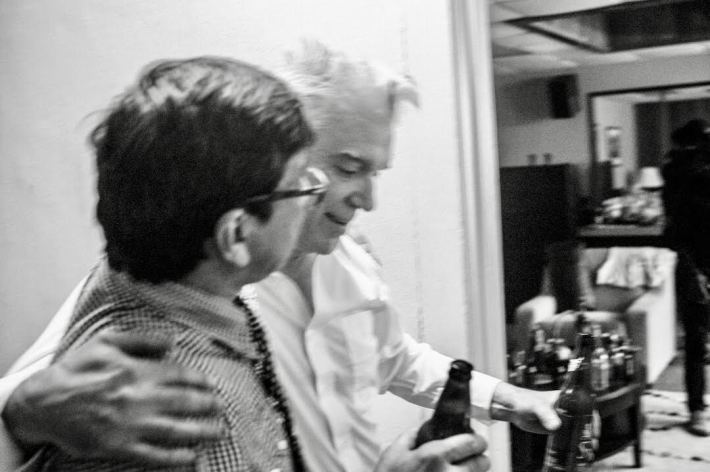
And you were in bands and playing music during this time?
Yeah. Right around that same time — this was long before the Internet — I was really interested in Robert Fripp’s Crafty Guitar thing that was happening. And I wrote a letter to Robert Fripp, and he answered my letter. And in the letter, he said, I will invite you to the next time we do the Crafty Guitars retreat.
One happened to be coming up in Malibu. He asked me to buy this special Takamine guitar, and I did. I attended. The first day, the instruction from him was to meet the next morning at 6 am in his room. And when I got to the room, I was the first one. He was sitting in a chair, and there were some other chairs around, and he was sitting in the center of the room. Sitting there. Eyes closed. And I realized, Oh, he's meditating.
So I meditated with Robert Fripp. After the meditation session, he kind of woke up, said, Good morning, we're going to now walk to the commissary.
We walked across this field to a small cafeteria-type place and walked into the kitchen area. And there were fruits and vegetables, and we made soup and we made bread.
Oh, so this was a different sort of music retreat.
I learned a lot. It changed my life, actually. He was using The Moosewood Cookbook. I use it to this day. I see recipes embedded into my brain. It was amazing. I learned a little bit about music.
After that experience, I decided I have to be all in [with music]. I had a lot of skills by that time, so it was easy for me to be all in. To survive in the world, you really have to have skills. Like, if that's not going to work out for you, you need to be able to do something else. Fortunately, things happened and I just stayed a musician, then turned into a composer. And I'm still doing it.
I think that's hard for a lot of creative people, to decide at what point they should go all in on their creative thing.
You have to have something there to back it up. It is true. I just read Originals by Adam Grant, and everyone in that book who soared to the top of their field all had something. The perception is you have to risk everything and you have to sleep in your car and all that. And I did do that a little bit, but I could've just gone to my parents' house and slept there, if I wanted to. So I was just kind of pretending to be struggling artist, just in my mind, just to entertain the idea. But it's not so cool. There are really people who have to struggle for their art, especially now.
RELATED: My Favorite Taco ~ Patty Rodriguez
Do you think it's easier or harder now for artists?
It depends on what it is. I think it's still hard for a lot of people. For musicians and songwriters, the songs are free now. So we're not making money off that. The 90s were really weird for making a shit ton of money for doing the same amount of work that people are doing now who are making no money. That doesn't seem fair.
Early in your career, you decided you wanted to own your own catalog?
Absolutely. 1995 was my first solo record. We already had been making Beastie Boys records, so I made some money, I started a family, and I started making my own songs. I made this record called Mark's Keyboard Repair and it did something. It did a lot, actually. And a lot of that music is actually in Ugly Delicious, twenty years later. It's only dispersed in all those eight episodes because I own the copyright. When I was doing my record deals way back in the day, there was a ton of money being offered to me. I decided not to do it. I decided to only license my albums to these labels. I can give you a figure: $750,000 was offered to me. And I turned it down. I wanted to own my copyrights. Instead, I licensed my records to these companies and I got back maybe $125,000. My lawyer at the time was like, That’s really dumb. In 20 years, no one's going to care about your music.
For the most part, he's right: In twenty years, how many acts have survived? For me, it worked out, but I guess if you crunch the numbers, it wasn't supposed to work out.
So, now I own all of my songs. I never really was corporate. Even with the Beastie Boys, technically, I was on the side.
What do you mean, on the side?
I was not part of a Beastie Boys company. I was only a hired gun, and I wanted it that way. I still am; I have been an independent artist this whole time. You were asking me how bands now succeed: They're all hoping to get corporate spot, a TV commercial. That's how their careers get kicked off.
Which is funny, because you were in a very early Apple commercial.
Yeah. I was the first modern solo artist to be in iTunes — the very first iTunes. A friend in San Francisco called me on my landline and told me he was watching Steve Jobs in Tokyo unveiling this iMac computer.
It was one of Apple’s Macworld events?
Yeah. Steve walks onto the stage. He said, I need some music, and he played my song, “Push the Button.” And that streamed worldwide. He didn't ask permission or anything. Because of that, my publishers contacted them and said, “Hey, you used our client's song.”
Steve Jobs called me, and I talked to him for like five seconds, not very long. He apologized, said, Hey I'm sorry for using your song, but it was amazing, and I think our business guys are going to work it out. I'm a fan.
And I was, Cool, and I'm a fan, too.
He said he’d use it for one year, on TV ads, and it's also going to be on this iTunes thing. I asked for something fair at the time. I asked for $250,000. And then something weird happened: Because he didn't ask permission ahead of time, it turned into triple damages. So I got $750,000.
That number again, $750,000.
That's my number.
Did you have any idea about what the impact of iTunes would be, or what it would mean for music in general?
No. Nobody knew. Nobody knew. It was really weird. In the commercial, it was, You can rip it, you can burn it. And then you see it’s iTunes on an iMac and think, Yeah, if I'm going to be able to get a song and just copy it on my own, that's kinda cool. Make my own CD!
It would burn CD one at a time. You can't start a record label like that. But it was cool, you could share [the CD] with people.
Nobody knew. I don't know he knew of it, either.
And now so much of music is digital.
You look on Beyonce records, or modern records, and there's 8 or 9 or 10 contributors to this one song, and same with a movie. So it's more like making a movie than my time. My records? I'm the only songwriter on my records. I'm the only one singing, and I'm playing 90 percent of all the instruments. So it's just by myself, like painting or something.
It goes back to the Walter Benjamin thing, authorship. Something digital, there's thousands of names, just to get things to turn. If you go to your computer and you go to About This Computer, it's 10,000 names. About This Software, another 10,000 names. You're collaborating with thousands and thousands of people. That's how I look at it. The authorship of all the stuff that I use is much smaller, and that's kind of how I feel more comfortable. There’s the person who made this guitar; on a tape machine, there's a motor and a magnetic head and then the tape itself. There are a handful of authors for that. I'm working with very few people. I feel like I'm still in my bedroom, making stuff with soldering iron.
This interview has been condensed and edited for clarity.
RELATED: Johnny Marr’s Los Angeles ~ An L.A. Taco Exclusive with the Legendary Smiths Guitarist
Read More:
Stay in touch
Sign up for our free newsletter
More from L.A. TACO
How Your Business Can Benefit From Sponsoring L.A. TACO
When your company sponsors L.A. TACO, you receive a variety of quick and cost-effective benefits for far less than what we price our traditional advertisements and social media mentions at.
Juárez-Style Burritos Have Arrived in Southern California, And They are Already Selling Out In Less than An Hour
The month-old strip mall taquería in Anaheim make all their flour tortillas from scratch using both lard and butter, resulting in an extremely tender vehicle for their juicy guisados like carne en su jugo, carne deshebrada, chile colorado, chile relleno, and chicharrón. Every tortilla is cooked to order, too.
Urgent: L.A. TACO Falling Short of Fundraising Goals and Needs Your Support
Emergency. This is not a test. This is not a ruse. This is not a marketing scheme. We need your support if we're going to make it and every single membership counts.
What To Eat In L.A. This Weekend: Mexican-Style Pastrami, ‘Trashburgers,’ and Flamin’ Jim Morrisons
Plus, a new shawarma spot in Tarzana and the country's first wine festival dedicated solely to orange "skin contact" wine happening in Hollywood.
